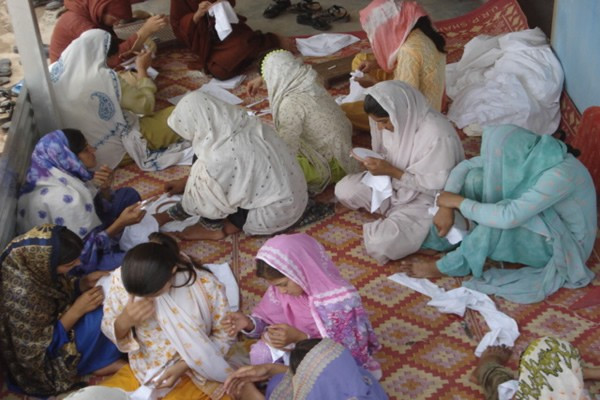Pakistani Women's Rights Activist Fareeda 'Kokikhel' Afridi Shot Dead in Peshawar
Founder of equal rights NGO murdered on way to work by motorbike assassins in tribal area

Fareeda 'Kokikhel' Afridi, director of the Society for Appraisal and Women Empowerment in Rural Areas (Sawera), a Pakistani non-governmental organisation dedicated to women's rights, has been murdered in a tribal area.
Afridi was shot once in the head and twice in the neck, officials said. She was killed in the Khyber tribal region.
"She was on her way to the office when militants opened fire," Jamrud political administration official Asmatullah Wazir told reporters.
Witnesses said they saw two motorcyclists following Kokikhel before they opened fire and sped away.
The activist was taken to hospital but died of her wounds shortly after the attack.
Media reports suggest police have arrested three suspects but that has not been confirmed.
Under threat
A month before her death, Afridi had told a journalist she was "under threat" and had been forced to change her mobile number.
The threats continued, however, prompting her to say in an interview, "I could even be killed in Peshawar," the online edition of Pakistan's Daily Times reported.
Though she never named the people threatening her, friends and colleagues suspect local Taliban militants were behind the campaign of intimidation.
Who is Fareeda Afridi?
The 25-year-old activist co-founded Sawera with her sister Noorzia in 2004. They graduated from university with a masters in gender studies.
Sawera focuses on promoting women's and children's rights and education in the tribal belt.
She had three sisters and two brothers. Her sisters said they faced a barrage of criticism, even from their own family, about starting a career in human rights.
"We told our parents that we would work in accordance with our religious and cultural traditions, assuring them that we would never let the family honour suffer because of our line of work. Finally, they agreed," Noorzia said.
Throughout her work, Kokikhel remained defiant and continued to criticise the government and the Taliban and the patriarchal nature of Pakistani society, which she saw as one of the main obstacles to women's empowerment.
© Copyright IBTimes 2025. All rights reserved.





















